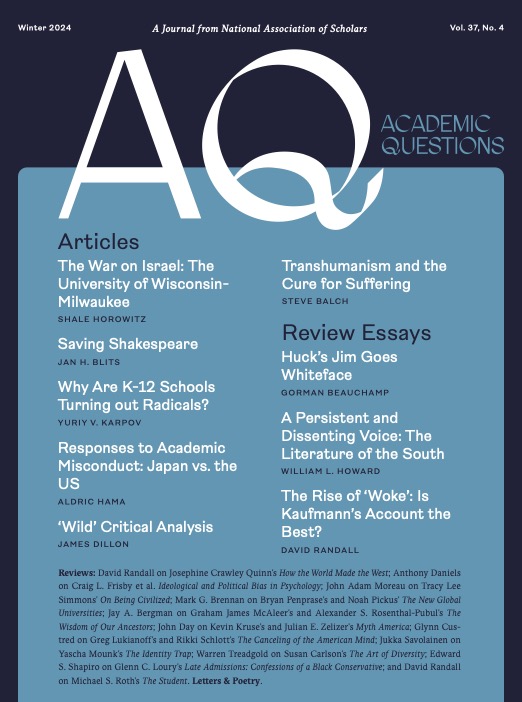The Canceling of the American Mind: Cancel Culture Undermines Trust and Threatens Us All—But There Is a Solution, Greg Lukianoff, Rikki Schlott, Simon & Schuster, pp. 464, $24.00 hardcover.
Over the past decades an ideology rooted in Cultural Marxism has been percolating outward from the university where it began, into all other institutions of society, into corporation board rooms, the entertainment industry, professional sports, government bureaucracies, the military, even some churches and, most importantly, K-12 education; a doctrine which is replacing the principles of individual rights and equality of opportunity—the foundation of a liberal democratic society—with those which underpin authoritarian governments, in this case group entitlements based on race and sex differences as defined and enforced by unelected bureaucratic entities. There are several names for this ideology and its tactics. One of them is “cancel culture,” the designation which Greg Lukianoff and Rikki Schlott have chosen for the title of their book, The Canceling of the American Mind: Cancel Culture Undermines Trust and Threatens Us All—But There Is a Solution.
Lukianoff is the president of the Foundation for Individual Rights and Expression (FIRE) whose mission it is to protect freedom of speech on college campuses and elsewhere. Rikki Schlott is a columnist for The New York Post, host of the Last Debate podcast, and Research Fellow at FIRE. The forward to their book was written by Jonathan Haidt who, in 2018, co-authored, with Lukianoff, The Codling of the American Mind: How Good Intentions and Bad Ideas Are Setting Us Up for Failure, a book which is cited often in The Canceling of the American Mind.
Lukianoff and Schlott begin by describing cancel culture as the process whereby its proponents can dismiss their ideological opponents without having to refute their arguments. This they do by means of ad hominem arguments, and by intimidating their opponents into silence by “digging up things to discredit them, making them fear for their jobs, and ‘winning’ arguments simply by making people too scared to say what they really think.”
The authors also show how such tactics are used in debates to defend politically correct positions, what the authors call a “rhetorical fortress” which, like the tactics of offense, is based on personal attacks which often involve race and sex. In this way they are able to derail any possible argument without having to address the underlying questions. Lukianoff and Schlott then cite their own experiences, along with many well documented cases, to show how this process works, and how widespread it is.
They begin with a brief history of the cancel culture movement which emerged following the period between 1964 and 1970, a time of the success of the free speech movement, and the passing of the 1964 Civil Rights Act. Around 1985 the gradual reversal of those liberal policies moved forward in what the authors call the “First Great Age of Political Correctness,” when speech codes, designed to suppress free speech, “exploded,” and when the phrase “political correctness” became a part of the public lexicon.
They define “speech codes” as limits placed on the use of words and arguments which are considered racist, sexist, and otherwise “hurtful” and “offensive,” as defined by those at the top who are directing this form of culture change. A leading figure in the formation of this ideology was Herbert Marcuse from the Frankfurt School of Marxism who has been called the “guru of the New Left,” and who Lukianoff and Schlott call the “spiritual godfather of the anti-free speech movement.”
It was from this brand of Marxism that the social justice school of Critical Theory developed and branched off into other “Critical Theories,” lines of argument which are designed to politicize any aspect of society which the ideologues find useful. The best known of them is law professor Derek Bell’s Critical Race Theory. It was also at that time when “Diversity, Equity and Inclusion” offices (DEI) were increasingly installed in organizations almost everywhere as a means of enforcing the new mandates.
This was followed by what the authors call the “Ignored Years,” 1995-2013, when viewpoint diversity on campus plummeted across the country, when tuitions rose and administrations grew, and when the steadily enacted DEI policies eventually lead to the situation we see today. Few noticed at the time, and those who did were either ignored or accused of exaggeration. It’s certainly noticed now in what the authors call the “Second Great Age of Political Correctness,” in which offices of Diversity, Equity, and Inclusion have been established in organizations of all kinds and when “a self-confident, pro-censorship ethos” took shape among students who have united with faculty and administrators in a “free speech skeptical coalition.” This coalition has produced “a campus culture that weeds out dissenters, and sometimes tries to strip professors of tenure” so that many faculty members are afraid to voice their opinions for fear of retribution, even of losing their jobs, thus transforming what once was a free marketplace of ideas into a closed institution of indoctrination.
Lukianoff and Schlott then go through a list of professions that have been infiltrated by this ideology, a list which includes science, medicine, the publishing industry, and journalism as well as k-12 education, and of course, the university, illustrating each one with case studies. The third part of the book, titled “What to Do About It,” makes suggestions on how this movement can be countered by those inside the effected organizations, and how parents can move against the indoctrination of their children. The Canceling of the American Mind is therefore not only a description of this ideology and its methods, but also a practical manual on how those most effected can move to resist and eventually overcome it.
Anyone who is under attack by this movement, and who chooses to resist, will find this book a valuable source of information on its origins and its methods, and on how it might best be countered. It will also be of use to anyone who has been its victim and wishes to explain in greater depth what has happened to them, as well as to anyone contemplating a move against this corrosive movement in their institution.
Glynn Custred is professor emeritus of anthropology at California State University, East Bay; [email protected]. Professor Custred is the author of A History of Anthropology as a Holistic Science (2016) and last appeared in our pages in the spring of 2024 with “The Place of the Novel in the Liberal Arts Curriculum,” a review of Joseph Epstein’s The Novel: Who Needs It.
Photo by BazziBa on Adobe Stock














